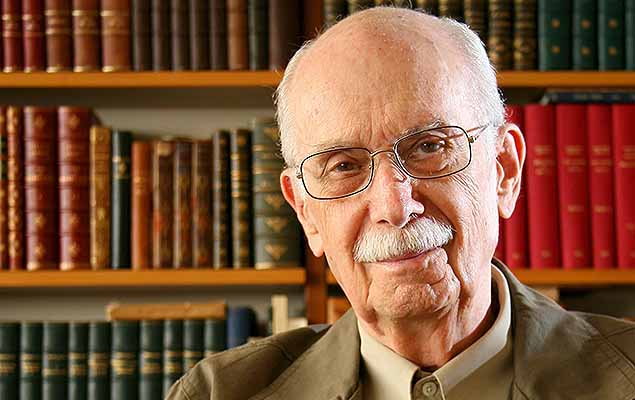Latest Photo Galleries
Brazilian Markets
17h34 Bovespa |
-0,32% | 124.741 |
16h43 Gold |
0,00% | 117 |
17h00 Dollar |
+0,38% | 5,1487 |
16h30 Euro |
+0,49% | 2,65250 |
ADVERTISING
Brazilian Literary Critic and Sociologist Antonio Candido Dies in São Paulo at Age 98
05/12/2017 - 12h30
Advertising
SERGIO RIZZO
FROM SAO PAULO
The literary critic, essayist, academic and sociologist Antonio Candido died in the early hours of this Friday (12), at age 98, at Albert Einstein Hospital, in São Paulo.
According to friend Edla Van Steen - a writer, editor and the widow of the critic Sábato Magaldi -, Candido had been hospitalized a few days ago and the cause of his death is related to intestinal problems.
According to the critic's family, an official note is being drafted by former Foreign Minister Celso Lafer.
Antonio Candido, a literary critic (how he preferred to present himself), professor, lecturer and an intellectual with political positions taken in public with boldness, author of books, essays and articles for the press, had a singular trajectory that made him a reference of Independence of thought and moral integrity for different generations of students, disciples, readers and admirers.
Candido´s career as a literary critic in the press began in 1943, when he started writing to "Folha da Manhã", which gave origin to "Folha de S.Paulo". Still in the 1940s, he was a literary critic of daily "Diário de São Paulo", and, in 1956, he developed the project of "Literary Supplement", published by daily "O Estado de S. Paulo", which helped to modernize cultural journalism in Brazil.
| Júlia Moraes/Folhapress | ||
 |
||
| Antonio Candido |
Candido's political actuation began in his youth as part of the Frente de Resistência ("Resistance Front") against the Estado Novo dictatorship. In 1942, he took part in the creation of the Grupo Radical de Ação Popular ("Radical Group of Popular Action"). Three years later, he was one of the founders of the União Democrática Socialista ("Socialist Democratic Union").
In 1966, returning from the season in Paris, he expressed his support for the Brazilian Democratic Movement party (MDB). In 1977, he signed the Intellectuals' Manifesto, which called for an end to censorship. In 1980, he was one of the founders of the Workers´Party (PT). "I confess that throughout my life, even in the most acute moments, I have never been able to lose my preoccupation with social and political factors, which have obsessed my generation as a kind of memento and almost remorse".



